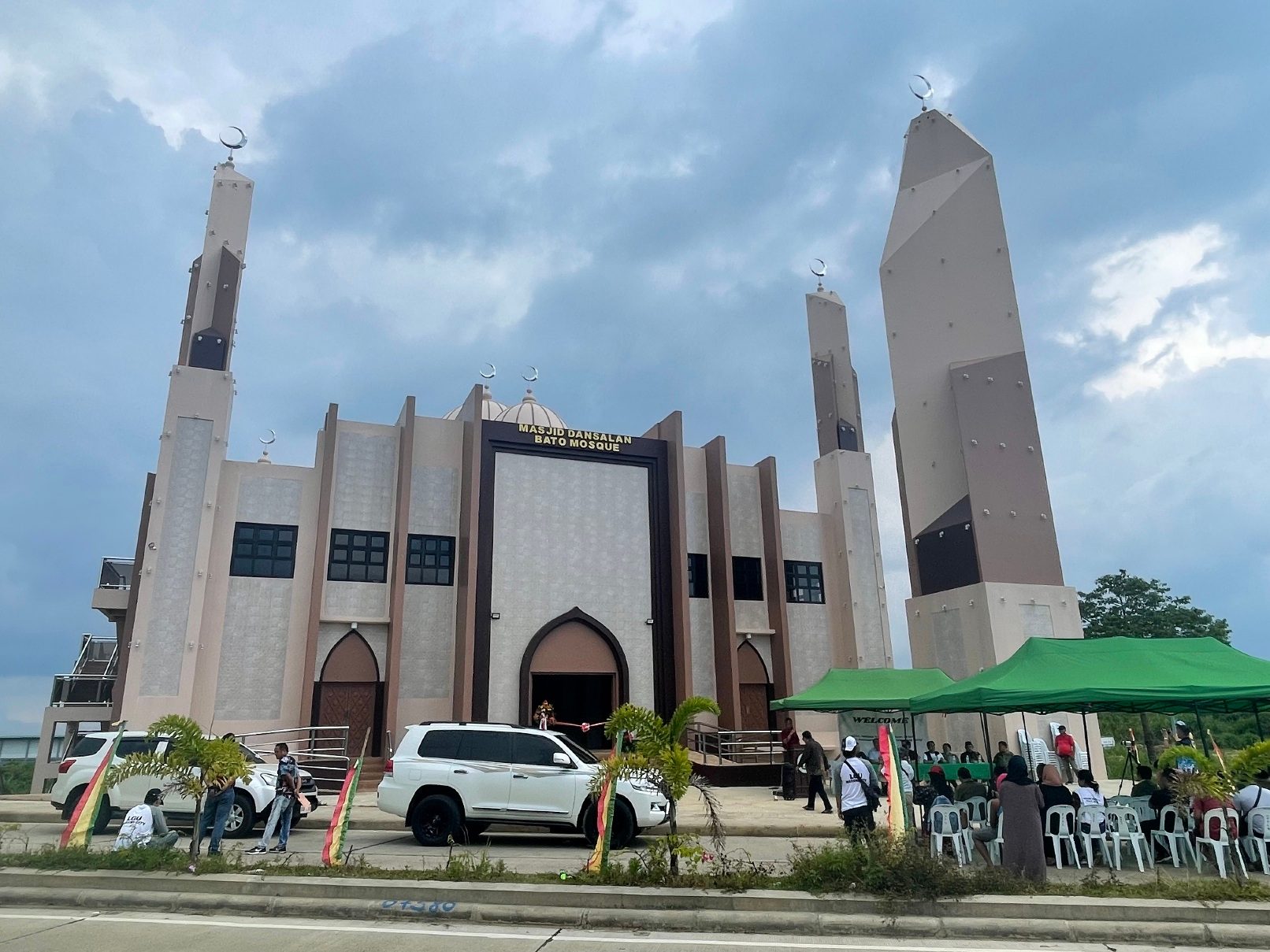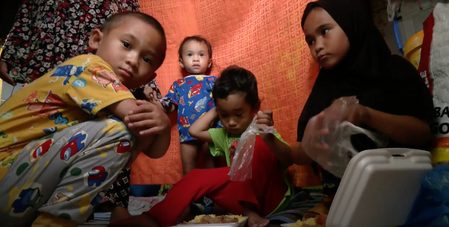From Rappler (May 23, 2023): Groups urge probe into roots of Marawi siege, use of rehabilitation funds (By MERLYN MANOS)

Six years later, many displaced people still live in temporary shelters without stable access to electricity and clean water to this day, and relying on government assistance
MARAWI, Philippines – A coalition of a dozen civil society groups called on Monday, May 22, for a congressional inquiry into the roots of the 2017 Marawi siege and the use of public funds in rehabilitating the predominantly Muslim city since the Duterte administration.
The coalition, composed of internally displaced persons, civil society organizations, women and youth, and Marawi leaders, made the call on the eve of the 6th anniversary of the devastation caused by months of fighting between government forces and a radical group.
It has been six years since thousands of families fled their homes in Marawi City due to the five-month battle, which claimed the lives of around 1,200 people, including soldiers, militants, and civilians.

FOR VICTIMS. Newly built small houses for displaced Marawi siege survivors in Barangay Kadingilan, Marawi City. – Merlyn Manos / Rappler
The Maqbarah Public Cemetery alone witnessed the burial of hundreds of people following the Marawi siege on May 23, 2017, an attempt by the Maute Group to establish a caliphate in the Muslim-majority city.
READ: Senior Abu Sayyaf leader swears oath to ISIS
EXCLUSIVE: The ISIS ideology is spreading fast on social media, ' the new machine to recruit militants.'
The Maute Group, led by Abdullah Maute and his brothers, along with Isnilon Hapilon, the late leader of the Abu Sayyaf group, pledged their allegiance to Abu Bakr Al-Baghdadi and his Islamic State of Iraq and Syria (ISIS).
In 2016, ISIS declared Hapilon as the “emir of all Islamic State forces in the Philippines,” causing shockwaves throughout Marawi and the country.
Longing to return
Six years after the five-month conflict, many displaced Maranao families are still eager to return to their communities and rebuild.
“A truth-seeking process on the roots of the Marawi siege and documentation of the dead in the mass grave (Maqbara) must be initiated by conducting an independent legislative inquiry on what really happened in Marawi and how the budget for rehabilitation of the city has been spent since 2017,” read a joint statement released by the coalition of groups.
The groups include:
The Maqbarah Public Cemetery alone witnessed the burial of hundreds of people following the Marawi siege on May 23, 2017, an attempt by the Maute Group to establish a caliphate in the Muslim-majority city.
READ: Senior Abu Sayyaf leader swears oath to ISIS
EXCLUSIVE: The ISIS ideology is spreading fast on social media, ' the new machine to recruit militants.'
The Maute Group, led by Abdullah Maute and his brothers, along with Isnilon Hapilon, the late leader of the Abu Sayyaf group, pledged their allegiance to Abu Bakr Al-Baghdadi and his Islamic State of Iraq and Syria (ISIS).
In 2016, ISIS declared Hapilon as the “emir of all Islamic State forces in the Philippines,” causing shockwaves throughout Marawi and the country.
Longing to return
Six years after the five-month conflict, many displaced Maranao families are still eager to return to their communities and rebuild.
“A truth-seeking process on the roots of the Marawi siege and documentation of the dead in the mass grave (Maqbara) must be initiated by conducting an independent legislative inquiry on what really happened in Marawi and how the budget for rehabilitation of the city has been spent since 2017,” read a joint statement released by the coalition of groups.
The groups include:
Marawi Advocacy Accompaniment (MAA)
Reclaiming Marawi Movement (RMM)
Kalimudan sa Ranao Foundation Incorporated (KFI)
Maranao Women Transformation for Inclusion and Democracy (MATAID)
Ompongan Youth Organization (OYO)
Ranao Rescue Team (RRT)
Moro Consensus Group (MCG)
Reconciliatory Initiatives for Development Opportunities Incorporated (RIDO)
Thuma Ko Kapagingud Service Organization Incorporated (THUMA)
Gender and Development (GAD), Mindanao State University-Iligan Institute of Technology (MSU-IIT)
Initiatives for Dialogue and Empowerment through Alternative Legal Services Incorporated (IDEALS)
Initiatives for International Dialogue (IID)
Many of the displaced people still live in temporary shelters without stable access to electricity and clean water to this day, relying on government assistance.
For instance, Emma Macalaba, a 72-year-old woman from Marawi’s most affected area, said her family received P70,000 in cash aid to establish a store, but they hope to move into a permanent shelter soon.
Appeal for more patience
Despite widely publicized rehabilitation efforts in the city’s most affected areas, the coalition claimed that the promise to rebuild the lives of siege victims and survivors remains unfulfilled.
As of March 21, the United Nations Office for the Coordination of Humanitarian Affairs (UNOCHA) reported that approximately 80,300 people, or about 16,070 families remain displaced since May 2017.
Around 70% of them reside in home-based settings, while the rest are in transitory sites or temporary shelter communities, according to the groups.
The Task Force Bangon Marawi reported that only 575 families have received permits to repair their houses, with an additional 680 families granted permits to construct homes in the most affected area.
On May 17, the Task Force Bangon Marawi handed over 500 houses to residents who were previously not allowed to rebuild their homes, especially those who lived near Lake Lanao before the 2017 battle.
The Philippine Center for Investigative Journalism (PCIJ) reported in March that the Duterte administration alone set aside more than P10 billion for the rehabilitation of Marawi and much of the funds were spent for the restoration of public infrastructure.
Reclaiming Marawi Movement (RMM)
Kalimudan sa Ranao Foundation Incorporated (KFI)
Maranao Women Transformation for Inclusion and Democracy (MATAID)
Ompongan Youth Organization (OYO)
Ranao Rescue Team (RRT)
Moro Consensus Group (MCG)
Reconciliatory Initiatives for Development Opportunities Incorporated (RIDO)
Thuma Ko Kapagingud Service Organization Incorporated (THUMA)
Gender and Development (GAD), Mindanao State University-Iligan Institute of Technology (MSU-IIT)
Initiatives for Dialogue and Empowerment through Alternative Legal Services Incorporated (IDEALS)
Initiatives for International Dialogue (IID)
Many of the displaced people still live in temporary shelters without stable access to electricity and clean water to this day, relying on government assistance.
For instance, Emma Macalaba, a 72-year-old woman from Marawi’s most affected area, said her family received P70,000 in cash aid to establish a store, but they hope to move into a permanent shelter soon.
Appeal for more patience
Despite widely publicized rehabilitation efforts in the city’s most affected areas, the coalition claimed that the promise to rebuild the lives of siege victims and survivors remains unfulfilled.
As of March 21, the United Nations Office for the Coordination of Humanitarian Affairs (UNOCHA) reported that approximately 80,300 people, or about 16,070 families remain displaced since May 2017.
Around 70% of them reside in home-based settings, while the rest are in transitory sites or temporary shelter communities, according to the groups.
The Task Force Bangon Marawi reported that only 575 families have received permits to repair their houses, with an additional 680 families granted permits to construct homes in the most affected area.
On May 17, the Task Force Bangon Marawi handed over 500 houses to residents who were previously not allowed to rebuild their homes, especially those who lived near Lake Lanao before the 2017 battle.
The Philippine Center for Investigative Journalism (PCIJ) reported in March that the Duterte administration alone set aside more than P10 billion for the rehabilitation of Marawi and much of the funds were spent for the restoration of public infrastructure.

Melissa Aradanas, the assistant secretary of the task force, said their objective is to complete all government projects within and beyond the most affected area in Marawi by the end of this year.
Critical projects include the installation of water and power supplies, as access to these necessities is essential for residents to regain normalcy in their lives.
Aradanas appealed to the displaced families for patience, assuring them that the government is making every effort to address their immediate needs and, most importantly, facilitate their long-term return to the most affected area.
Other challenges
While the civil society groups commended the passage of the Marawi Siege Victims Compensation Act, they said the measure has limitations, and the government has a responsibility to address the urgent issues and concerns faced by the displaced population beyond mere financial compensation.
They called on the national and Bangsamoro regional governments to consider other challenges encountered by displaced families.
These challenges include land conflicts and dispossession in Marawi, which could result in the permanent displacement of thousands of residents especially in four barangays.
The groups also expressed apprehension about the construction of large-scale public infrastructure that allegedly does not meet the needs of the residents. They also highlighted the continued militarization of Marawi and the province of Lanao del Sur, with the presence of various military camps.
The groups claimed that human rights violations, illegal demolitions, and unresolved cases of unidentified victims persist from the siege, and families continue to seek justice for the innocent lives lost.
“For the longest time, the IDPs remained to be on the receiving end of systematic marginalization, dis-inclusion, and discrimination. We reiterate our view that rebuilding Marawi must go beyond rebuilding the streets, setting up traffic lights, and building barangay halls destroyed during the siege,” read a part of their joint statement.
Meanwhile, a group of internally displaced people has scheduled a walk for justice and peace to commemorate the 6th anniversary of the Marawi siege on Tuesday morning, coinciding with the signing of the implementing rules of the Marawi Compensation Act.
https://www.rappler.com/nation/mindanao/civil-society-groups-urge-probe-roots-marawi-siege-use-rehabilitation-funds/
While the civil society groups commended the passage of the Marawi Siege Victims Compensation Act, they said the measure has limitations, and the government has a responsibility to address the urgent issues and concerns faced by the displaced population beyond mere financial compensation.
They called on the national and Bangsamoro regional governments to consider other challenges encountered by displaced families.
These challenges include land conflicts and dispossession in Marawi, which could result in the permanent displacement of thousands of residents especially in four barangays.
The groups also expressed apprehension about the construction of large-scale public infrastructure that allegedly does not meet the needs of the residents. They also highlighted the continued militarization of Marawi and the province of Lanao del Sur, with the presence of various military camps.
The groups claimed that human rights violations, illegal demolitions, and unresolved cases of unidentified victims persist from the siege, and families continue to seek justice for the innocent lives lost.
“For the longest time, the IDPs remained to be on the receiving end of systematic marginalization, dis-inclusion, and discrimination. We reiterate our view that rebuilding Marawi must go beyond rebuilding the streets, setting up traffic lights, and building barangay halls destroyed during the siege,” read a part of their joint statement.
Meanwhile, a group of internally displaced people has scheduled a walk for justice and peace to commemorate the 6th anniversary of the Marawi siege on Tuesday morning, coinciding with the signing of the implementing rules of the Marawi Compensation Act.
https://www.rappler.com/nation/mindanao/civil-society-groups-urge-probe-roots-marawi-siege-use-rehabilitation-funds/

No comments:
Post a Comment
Note: Only a member of this blog may post a comment.